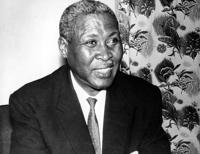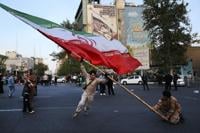JOHANNESBURG (AP) — South African prosecutors on Monday reopened an inquest into the apartheid-era death of Nobel Peace Prize winner Albert Luthuli 58 years after the government declared he was accidentally killed when a train struck him.
Luthuli at the time in 1967 led the African ��ɫtv Congress, which became South Africa's ruling party at the end of white minority rule in 1994.
The current government's ��ɫtv Prosecuting Authority has reopened a number of apartheid-era cases. It has cited the complexity of reconstructing old cases and investigations as one reason for long delays.
Also being reassessed is the death of anti-apartheid activist and lawyer Griffiths Mxenge, who was killed near Durban in 1981, stabbed 45 times and with his throat slit. Another case is looking at the deaths of the so-called Cradock Four, activists who were killed by apartheid-era security forces in 1985.
Addressing the court on Monday, prosecutors said they would present new evidence showing that the findings of an 1967 inquest — that nobody could be held criminally liable for Luthuli's death — were not based on fact and evidence and were “aimed at ensuring that the perpetrators remain hidden and protected.”
Prosecutors asserted that there was “collusion between the security police, district surgeon, pathologists, prosecutors and the magistrate that presided over the initial inquest.”
Luthuli’s family and others have long questioned the findings and called for an independent probe.
His grandson, Sandile Luthuli, told South Africa's public broadcaster that Luthuli's two surviving daughters were now aged 90 and 93 and were relieved to see the reopening of the inquest.
“It has been 57 years in the making,” Luthuli said, calling the death murder.
The prosecuting authority seeks to have the findings of previous inquests into Luthuli and Mxenge overturned.
“Our system now allows for the reopening of inquests, and we believe that the Luthuli and Mxenge family are going to find closure,” said ANC spokesperson Mahlengi Bhengu-Motsiri.










































